Terrified pregnant British woman stranded in war-torn Sudan ‘could give birth at any moment’
The family, who have almost no supplies and no way of escape, say they have heard nothing from the British authorities despite its large-scale evacuation of citizens
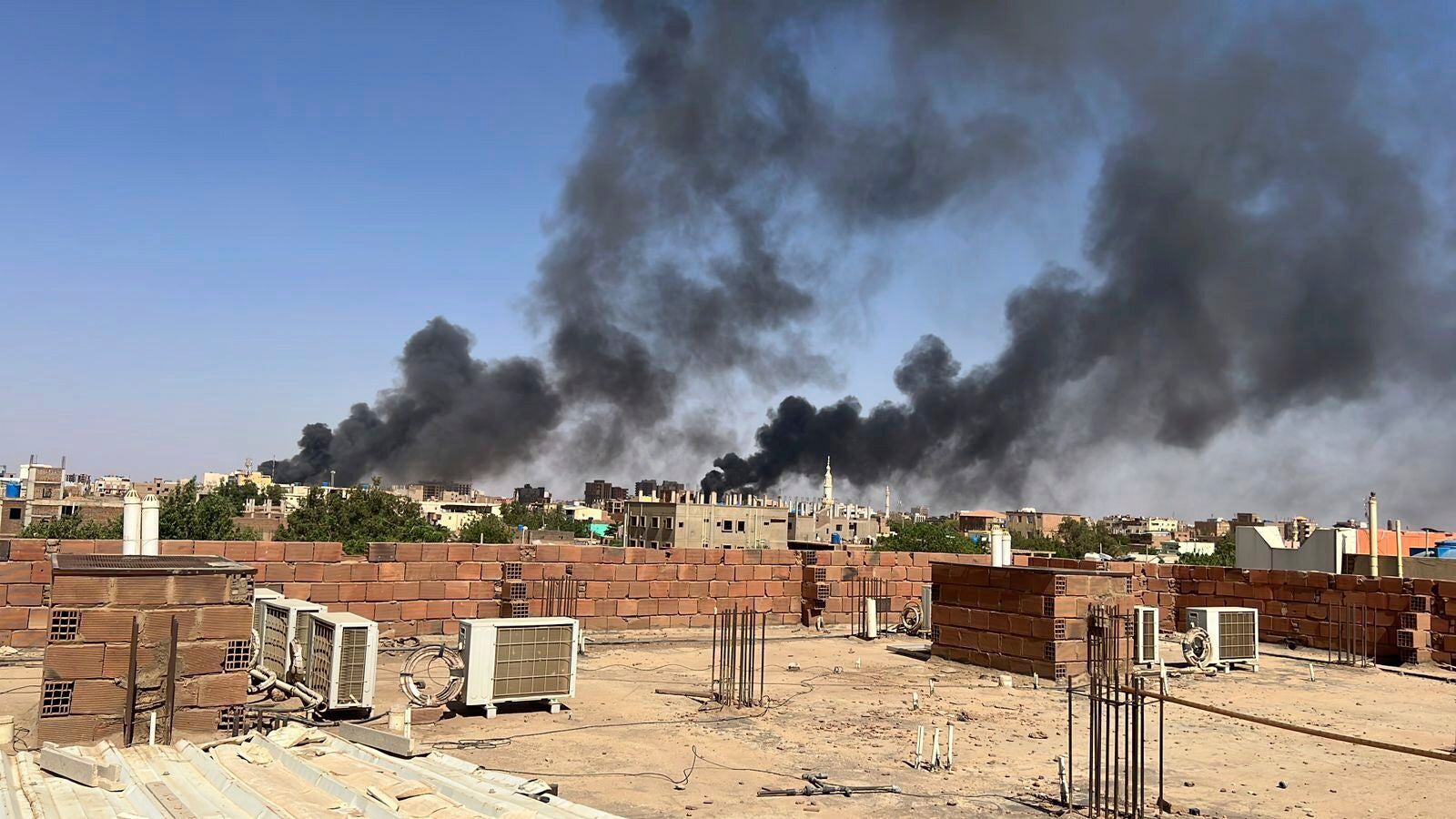
Your support helps us to tell the story
From reproductive rights to climate change to Big Tech, The Independent is on the ground when the story is developing. Whether it's investigating the financials of Elon Musk's pro-Trump PAC or producing our latest documentary, 'The A Word', which shines a light on the American women fighting for reproductive rights, we know how important it is to parse out the facts from the messaging.
At such a critical moment in US history, we need reporters on the ground. Your donation allows us to keep sending journalists to speak to both sides of the story.
The Independent is trusted by Americans across the entire political spectrum. And unlike many other quality news outlets, we choose not to lock Americans out of our reporting and analysis with paywalls. We believe quality journalism should be available to everyone, paid for by those who can afford it.
Your support makes all the difference.A terrified pregnant British woman stranded in war-torn Sudan with her family fears she could give birth at any moment as they battle to flee the country.
The woman’s older sister Saryah Elwasila, 29, said the family of five, who were in the country visiting family for Ramadan and Eid al-Fitr when fierce clashes erupted, had been forced to flee Khartoum to the city of Wad Madani in the neighbouring state of Gezira, without food, power, fuel, very little water and money. There is also no functioning hospital nearby if the woman goes into labour after many were bombed and doctors fled.
The family has been robbed twice by looters who are raiding abandoned areas, leaving them with only their passports, a small amount of money and the clothes they were wearing.
The British government announced on Tuesday morning that it would begin evacuation flights for UK nationals from Sudan following an agreed 72-hour ceasefire but Elwasila said her family had heard nothing from British authorities. Without fuel, they fear they have now lost their last slim chance of escape.
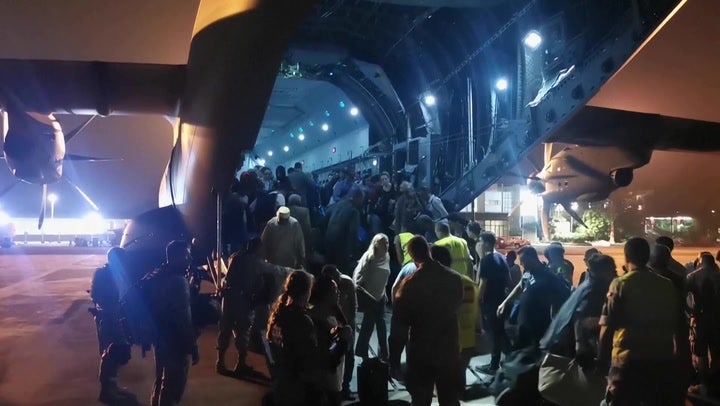
Speaking to The Independent from a family friend’s house in Wad Madani, Ms Elwasila said: “We are trapped in this war. At this point, we’re not even thinking about food – we just want to get out of here.
“I’m not even worried about myself at this point. My sister is terrified, which could put her into labour at any moment as she’s 34 weeks pregnant. She can’t tolerate everything that’s going on.”
Ms Elwasila said she and her family – who are British-Sudanese dual nationals based in Manchester, one of whom is an NHS doctor – were forced to flee the house where they were staying in Khartoum after they were left without power and water for five days.
She described a city hit by non-stop bombing, explosions, gunshots and fires, with soldiers from Sudan’s paramilitary, the Rapid Support Forces (RSF), filling the streets. She said those from their rival force, the country’s army, were nowhere to be seen.
The 29-year-old said: “We saw dead bodies on the street, covered in plastic bags or cardboard. It smelled terrible - probably from the dead bodies. And there was waste and garbage all over the city.
“The city was packed with buses of people trying to leave.”
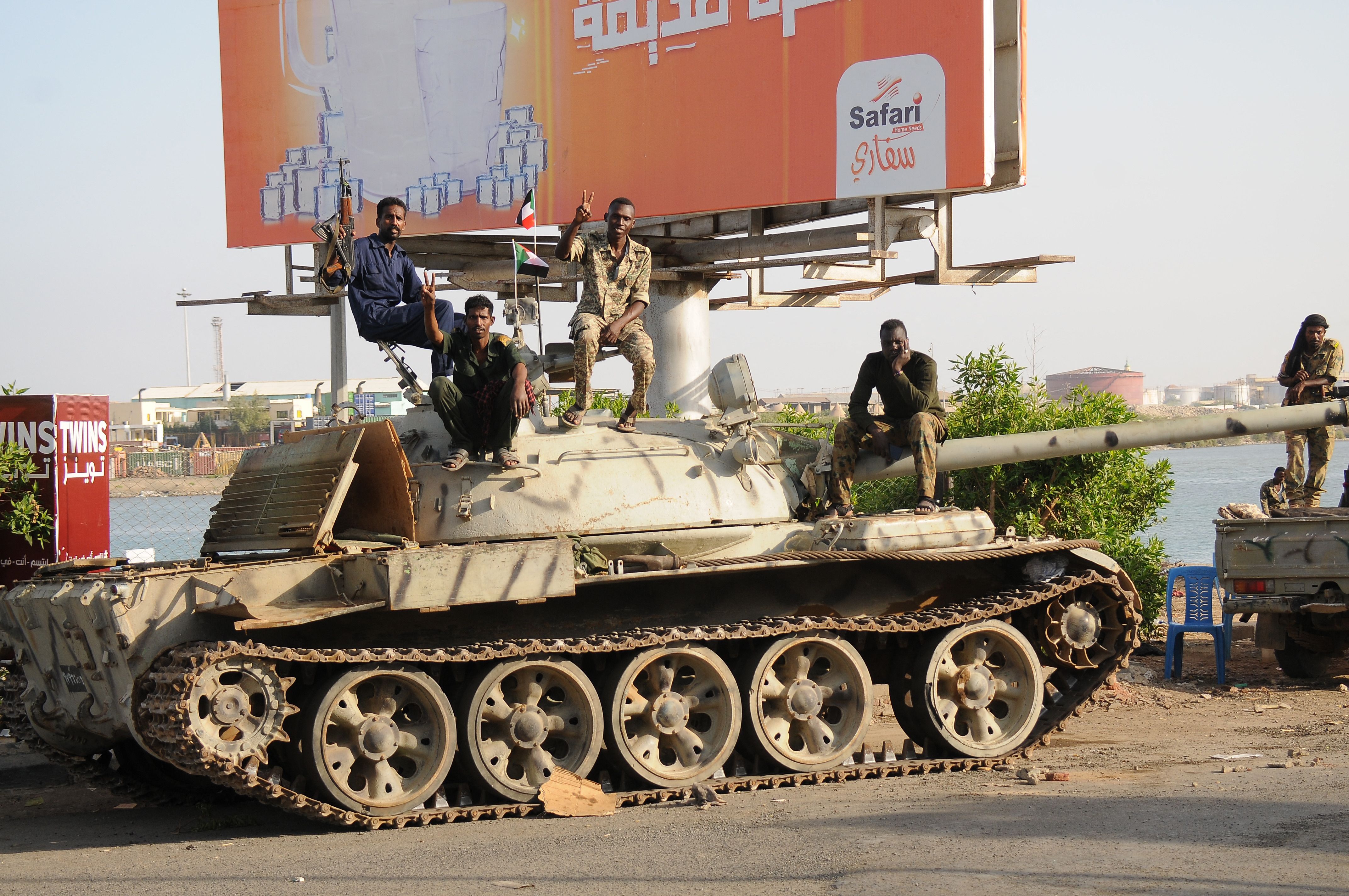
The family initially escaped to Ms Eswasila’s grandmother’s house in the suburb of Riyad. However, with supplies dwindling and Ms Eswasila’s father trapped in the village of Jabal Awliya, south of Khartoum, the woman, her mother and her two sisters made the 13-hour drive to rescue him.
She said they were attacked and robbed twice on the journey by people “abusing” the chaotic situation in the country. “They were banging on our car and almost smashed the glass. They were going through our stuff and asking for money. They had weapons, so you couldn't argue and just paid whatever they asked.”
After meeting her father, Ms Eswasila said the family crossed into the neighbouring state of Wad Madani to seek refuge with family friends.

“I literally have nothing with me but my passport and what I’m wearing and a little bit of money that might go at any minute. I haven’t slept in days because the bombing keeps waking me up,” said Ms Eswasila, who forgot her own birthday on 22 April amid the horrors of the war.
Alongside power and food, the Eswasila family has run out of petrol and cannot source any, leaving the family with no clear escape route from the country, having had no contact from the UK government despite registering for evacuation.
Ms Eswasila said: “I expected them to do something. Other embassies have managed to evacuate citizens. We’re now trying to figure it out and make it on our own, to see if there’s any way to make it out of this country.”
The World Health Organisation (WHO) said on Tuesday that at least 459 people have been killed in fighting in Sudan and 4,072 injured.
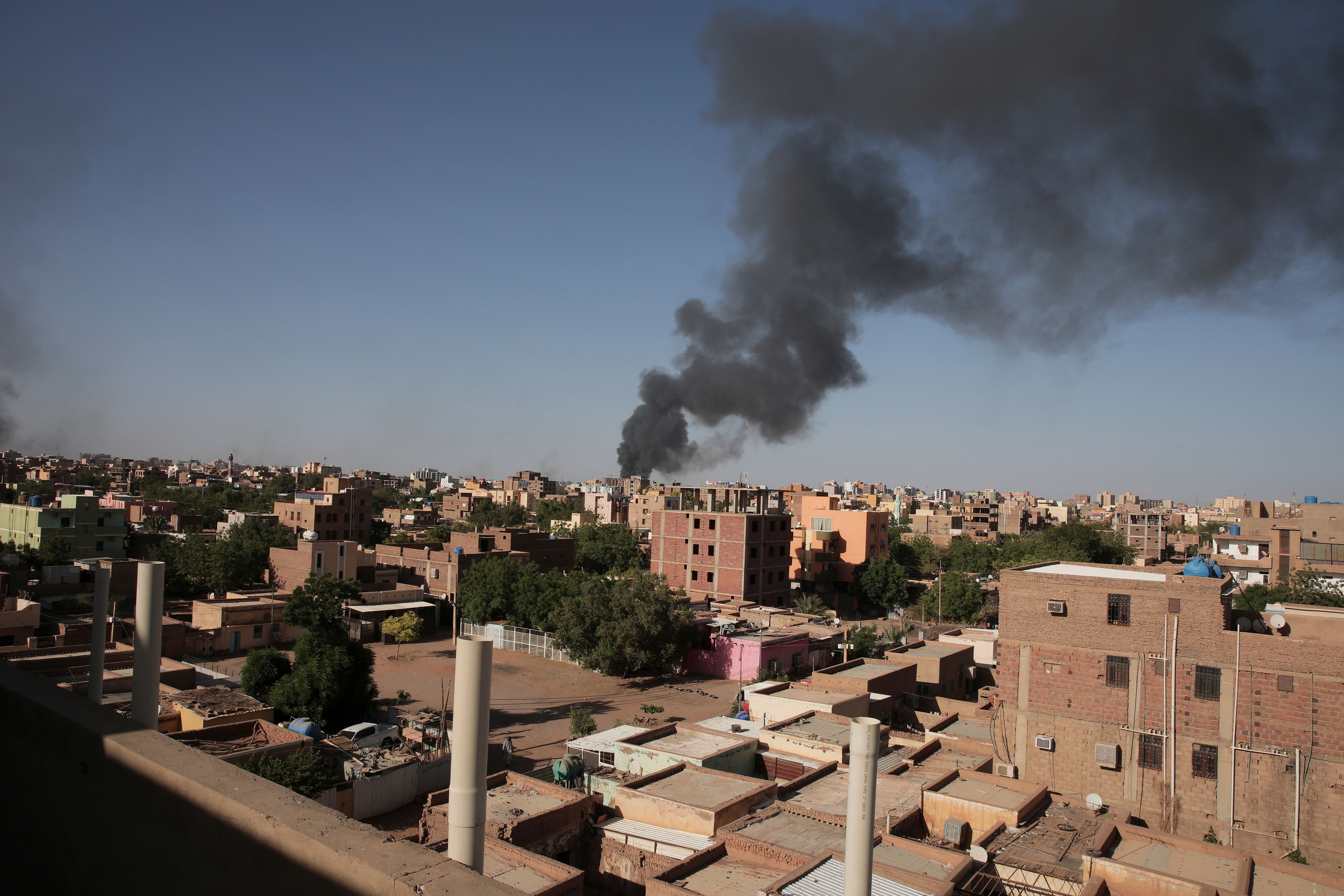
At the heart of the conflict are two generals: Sudanese army chief General Abdel-Fattah al-Burhan and RSF’s leader General Mohamed Hamdan Dagalo who initially joined forces in a coup in 2021 just two years after the ouster of long-term autocrat Omar al-Bashir.
The pair became heads of the country’s new ruling Sovereign Council. However, tensions spilled into violence as they clashed over details of a transition agreement to civilian rule that was supposed to be signed last month and would have seen RSF forces merged into the military.
Ms Eswasila’s husband is still trapped in “the most dangerous part” of Khartoum and “it is too dangerous to leave”, she said. “He’s been telling me he’s alive, and that’s it.”
The couple split their time between their house in the Sudanese capital, where he is currently stuck, and Manchester. Ms Eswasila wasn’t with him when fighting erupted on 15 April as she was spending the weekend with her parents and siblings.
Back in the UK, family friend Lamees Babiker, 33, is extremely concerned about the family, especially the oldest sister, who is a fellow NHS worker.
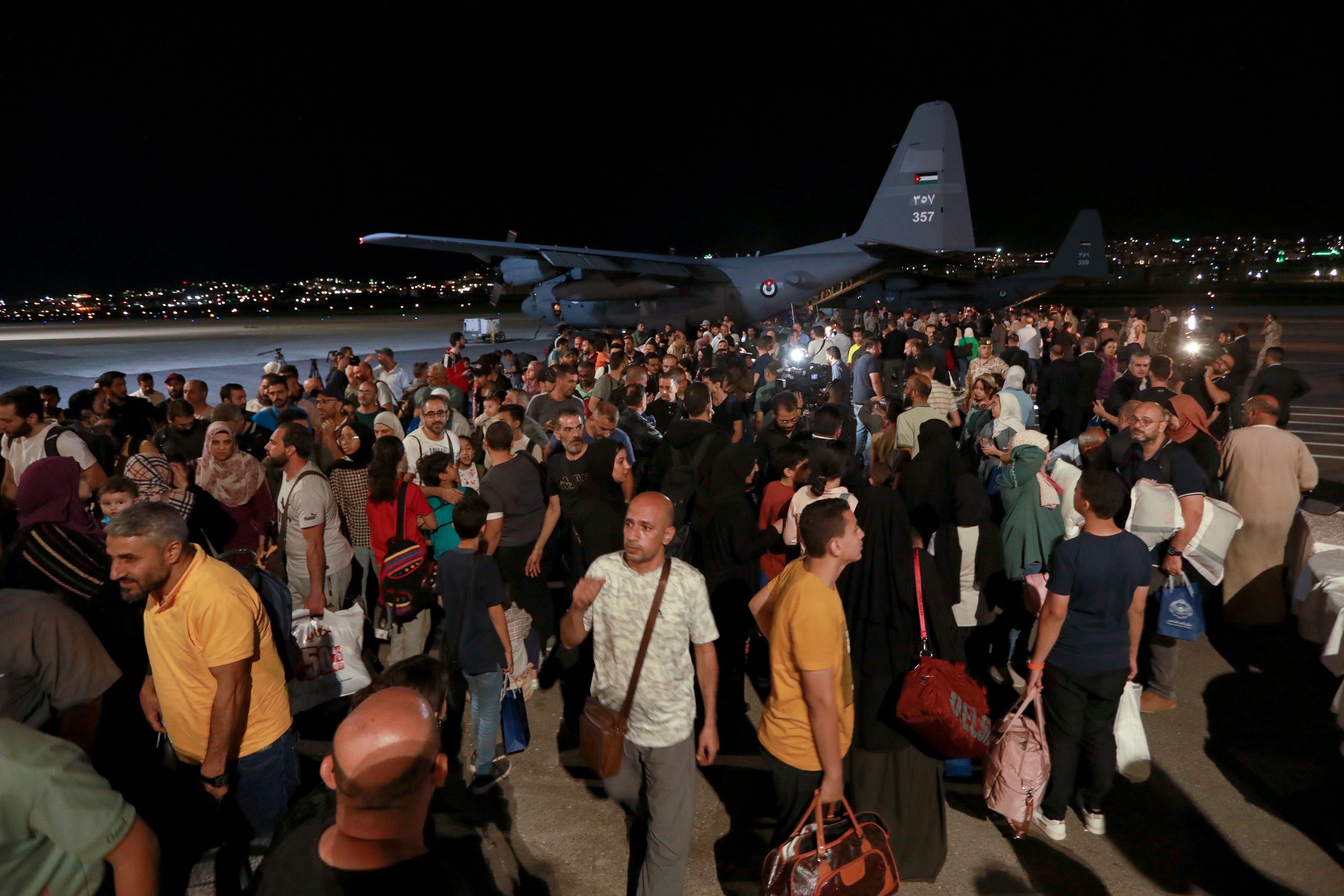
Ms Babiker, who is also a British-Sudanese dual national and has family caught up in the violence in Sudan, told The Independent: “I’m absolutely devastated, I’m crushed, I’m in shock. It’s just been a festival of tears this Eid. It’s heartbreaking and worrying. I’m trying not to speak out loud my fears for the worst. There’s a very real possibility we might not see the family again.”
She described the family as “the loveliest, kindest, most generous family” and a “pillar of the Sudanese community” in Manchester. “They support anyone and everyone who needs it, they open up their home. They made their family everyone’s family.”
She spoke of how the oldest sister “truly risked her life” throughout the pandemic, working in the intensive care wards in hospitals before she had access to PPE.
Ms Babiker said: “When it was their turn to give to Britain they did give their lives. Leaving them stranded, leaving them to experience the horrors they experienced, without any light on the horizon for help - it’s so unfair.”
While they said they do not comment on individual cases, a Foreign, Commonwealth & Development Office spokesperson said: “British nationals are our priority and we are doing all we can to get them to safety amid a rapidly changing situation on the ground.
“Our travel advice has been updated to tell all British nationals in Sudan to go to the [ Wadi Saeedna] airfield as soon as possible to be processed for flights. We continue to call British nationals in order of vulnerability to ensure that they have seen this updated advice.”



Join our commenting forum
Join thought-provoking conversations, follow other Independent readers and see their replies
Comments